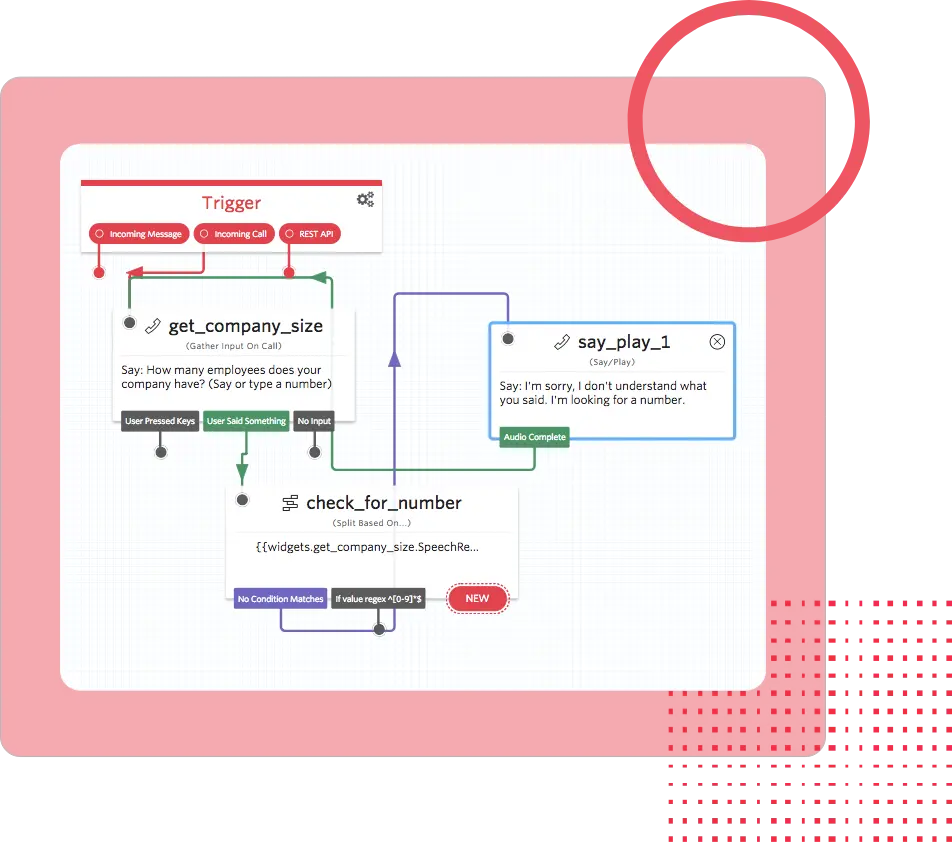
Your CRM is supposed to make life easier - keeping sales, support, and marketing efforts in sync. But when systems don’t communicate, managing customer relationships turns into a guessing game. Leads go missing, customer records don’t match, and teams waste time fixing data instead of using it.You could try to patch things together yourself, but that means constant troubleshooting, messy workarounds, and hoping nothing breaks when an update rolls out.CRM integration services take that weight off your shoulders. They connect your CRM with the tools you actually use, syncing data, automating workflows, and making sure everything just works.No more broken connections. No more wasted time. Just a system that keeps up with your business, not the other way around. Let’s talk about what these services do and why they matter.
In simple terms, CRM integration connects your customer relationship management software with the other tools your business relies on, such as email, marketing automation, customer support, e-commerce, billing, and more.Instead of fragmented data and manual updates, everything syncs automatically. This gives every team access to real-time, accurate customer insights.But this isn’t just about convenience; it’s about control. Without integration, businesses operate on assumptions. With it, they operate on facts.
You update a customer record in one tool, and like magic, every system reflects the change. No manual data entry. No mismatched information. No frustrated teams scrambling for the latest details.But here’s what you need to know: this doesn’t happen on its own. CRM integration works through structured data flows, which help make sure the right information moves to the right places at the right time.

Here's a rundown of how CRM integrations work:
When done right, you'll get:
You can't deny that CRM integration is now a business necessity. When systems work together, teams move faster, data stays accurate, and customers get a seamless experience.Take a look at some of the key benefits:
A disconnected CRM slows everything down. Integration turns it into the control center for customer interactions, which helps make every touchpoint smoother and every team more effective.
Technically, yes. But integrating CRM software manually is a complex, time-consuming process.It requires custom coding, ongoing maintenance, and constant troubleshooting to keep everything running smoothly. Without the right infrastructure, data inconsistencies, syncing errors, and security vulnerabilities become real risks.

Even if an in-house team connects systems, scaling becomes a challenge. Every new tool, workflow update, or compliance change demands adjustments. These issues can turn a simple integration into a full-time job.Businesses that try to handle CRM integration themselves often end up with a patchwork of disconnected tools, bottlenecked processes, and frustrated teams.In contrast, a well-built integration ensures reliability, scalability, and long-term efficiency without the constant headache of fixing broken connections.
You could try to piece everything together yourself - manually syncing data, fixing broken connections, and hoping nothing falls through the cracks. But you can probably already tell that that would be a never-ending headache.Luckily, CRM integration services can take that burden off your plate so everything runs smoothly without constant intervention.CRM integration services have various offers, but here are the ones you can usually expect:
Most CRMs aren’t plug-and-play with every tool your business needs. That’s where API development comes in.Integration services build and manage custom APIs, creating a direct line of communication between your CRM and other platforms. Whether it’s syncing customer data, automating workflows, or triggering actions across different systems, APIs make it happen in real time.But it’s not just about building the connection. It’s about keeping it secure, stable, and scalable. Services handle authentication, rate limits, and error handling, so you’re not stuck troubleshooting broken integrations.
Your customer data is scattered across multiple systems - emails, sales records, support tickets, and invoices. Without proper integration, it’s a mess of duplicate entries, outdated records, and conflicting information.CRM integration services clean this up by mapping data fields correctly and making sure every system pulls from a single, accurate source. Instead of manually updating records across platforms, everything syncs automatically, and teams always work with real-time information.These services also handle formatting issues, merging inconsistencies, and preventing data loss during transfers. The result? A CRM that stays aligned with your entire tech stack. This helps make every interaction stay consistent and every record reliable.
Manually updating records, assigning tasks, and tracking customer interactions slows everything down. CRM integration services set up automated workflows that keep processes moving without constant input.Leads are assigned to the right reps, follow-up emails are sent on time, and support tickets trigger responses automatically. These services customize automation to fit your business, reducing delays and human error.Teams don’t have to remember every next step - workflows handle it for them. Sales, marketing, and support stay focused on closing deals and helping customers, not on repetitive tasks that should already be taken care of.
Customers expect quick, seamless communication across every channel. CRM integration services connect your system with messaging platforms like Twilio and Pronto so that every interaction is smooth and efficient.
No gaps or confusion. Just seamless communication that keeps customers informed and teams on the same page.
Picture this: A sales rep updates a customer’s contact details, but without the right safeguards, that data is exposed across multiple platforms - some secure, some not. A support agent accesses private account history, but there’s no control over who else can see it.Integrating multiple systems without security measures creates vulnerabilities that put customer information at risk.CRM integration services lock down data with encryption to make sure that sensitive information stays protected during transfers.For one, access controls define who can view, edit, or share records, preventing unauthorized access. Plus, compliance measures align systems with industry regulations to reduce legal and financial risks.Instead of leaving security to chance, integration services make sure customer data is handled safely, no matter how many platforms it moves through.
One glitch, and suddenly, customer records don’t sync, sales teams lose track of leads, and support agents are left working with outdated information.A broken integration doesn’t just slow things down; it creates confusion, missed opportunities, and frustrated teams. CRM integration services handle the heavy lifting by monitoring connections to catch issues before they disrupt operations.Updates roll out seamlessly to ensure compatibility as systems evolve. Troubleshooting happens in real time, preventing minor hiccups from turning into major breakdowns.Essentially, you'll spend less time firefighting technical issues. Instead, you can focus on what actually matters: serving customers without worrying about whether your systems will keep up.
As mentioned, you could try handling CRM integration yourself - spending hours troubleshooting, fixing broken connections, and hoping updates don’t cause new issues. Or you could let experts take care of it.A CRM integration service makes sure everything runs smoothly, so your team isn’t stuck dealing with tech problems instead of growing the business.
Rather than spending too much time managing integrations, you get a system that works - without the hassle.
Integrating Twilio into your CRM system shouldn’t feel like a never-ending project. When done right, it improves customer communication, streamlines operations, and makes sure your teams always have the information they need at the right time.But without the right setup, you’re left dealing with frustrating glitches, scattered analytics, and workflows that don’t scale.

At Kaptea, we take care of the entire process, from seamless Twilio implementation to customized CRM integration.Whether you need real-time messaging, automated workflows, or a complete omnichannel setup, our team ensures everything works smoothly so you can focus on delivering exceptional service.With Kaptea, you get:
Twilio is simple - until it’s not. Don’t waste time fixing broken connections or guessing how to make it work for your business. Let Kaptea handle the heavy lifting so you can focus on actually building relationships with your customers.Talk to an expert today and take control of your CRM integration.
CRM integration connects your CRM system with other tools your business relies on - email, marketing platforms, customer support software, and even inventory management systems. Instead of manually updating data across different platforms, integration ensures everything syncs automatically. This creates a seamless flow of information, so teams always have real-time, accurate insights without extra effort.
CRM solutions generally fall into four categories:
Businesses often use a mix of these CRM types, depending on their goals and how they want to manage customer relationships.
CRM in services refers to how businesses use CRM software to manage customer interactions, streamline support, and improve service delivery. For example, a logistics company might use CRM solutions to track customer inquiries, automate delivery updates, and ensure support teams have full visibility into past interactions. By integrating their CRM with inventory management tools, they can provide real-time stock availability and delivery estimates without manual input.
CRM API integration allows your CRM to communicate with other software by using an Application Programming Interface (API). This lets different systems exchange data in real time, reducing the need for manual updates and preventing data silos. For example, integrating a CRM with Twilio via API enables automated messaging, call tracking, and customer notifications, all within a single platform. API integrations ensure that CRM solutions work smoothly with existing workflows, improving efficiency and customer engagement.